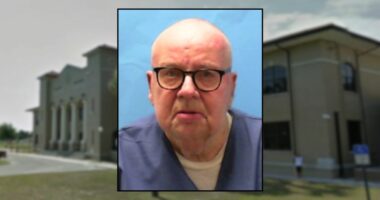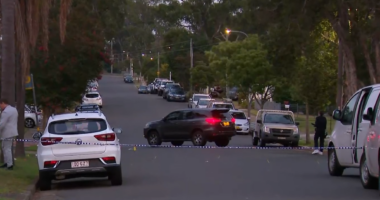Share this @internewscast.com
In a significant court ruling, a Florida judge sentenced Donovan Faison to death on Friday for the murder of his former girlfriend and their unborn child.
The sentencing took place in Seminole County, where 23-year-old Faison was held accountable for the 2022 murder of 18-year-old Kaylin Fiengo. The decision was announced through a press release from the Office of the State Attorney, 18th Judicial Circuit.
Prosecutor Stewart Stone highlighted the deliberate and premeditated nature of the crime, stating to the jury, “You may and should consider the cold, calculated, premeditated nature of this killing. This was an execution-style killing.”
According to WFTV-9, in November, a jury found Faison guilty of first-degree murder, which encompassed the “death of an unborn child.” Additionally, he was convicted of burglary.
The tragic event unfolded when Faison murdered Fiengo as she sat inside a Nissan in Sanford. Prosecutors revealed that he had enticed her to Coastline Park before fatally shooting her in the head.
At the crime scene, investigators discovered a bullet casing alongside an ultrasound image, adding to the evidence against Faison.
Previous Video Coverage
The prosecution said Faison became upset when Fiengo refused to get an abortion, and “erupted” in anger when she showed him two positive pregnancy tests.
Faison replied with a one-word text message to Fiengo that read, “Abortion!!!,” according to Law&Crime.
Text messages shown to jurors revealed that Faison told a friend he wanted to “crop her out,” referring to the victim. At the time, Faison had reportedly been living with another woman who had suspected him of cheating.
“Phones are an extension of your mind and your body – it’s the reason we can give you clear, convincing evidence,” prosecutor Domenick Leo stated. “He said he was going to do it, then he did it. The police got the right guy.”
In an 11-1 vote, the jury recommended the death penalty due to aggravating factors in the case.
“She graduated high school early as a young mother, with her cap saying ‘mommy did it, ‘” Fiengo’s mother said in a statement.
“She is a loss for many, but for her mom an empty hole in my heart that will never heal.”
[Feature Photo: Kaylin Fiengo/Handout]

















